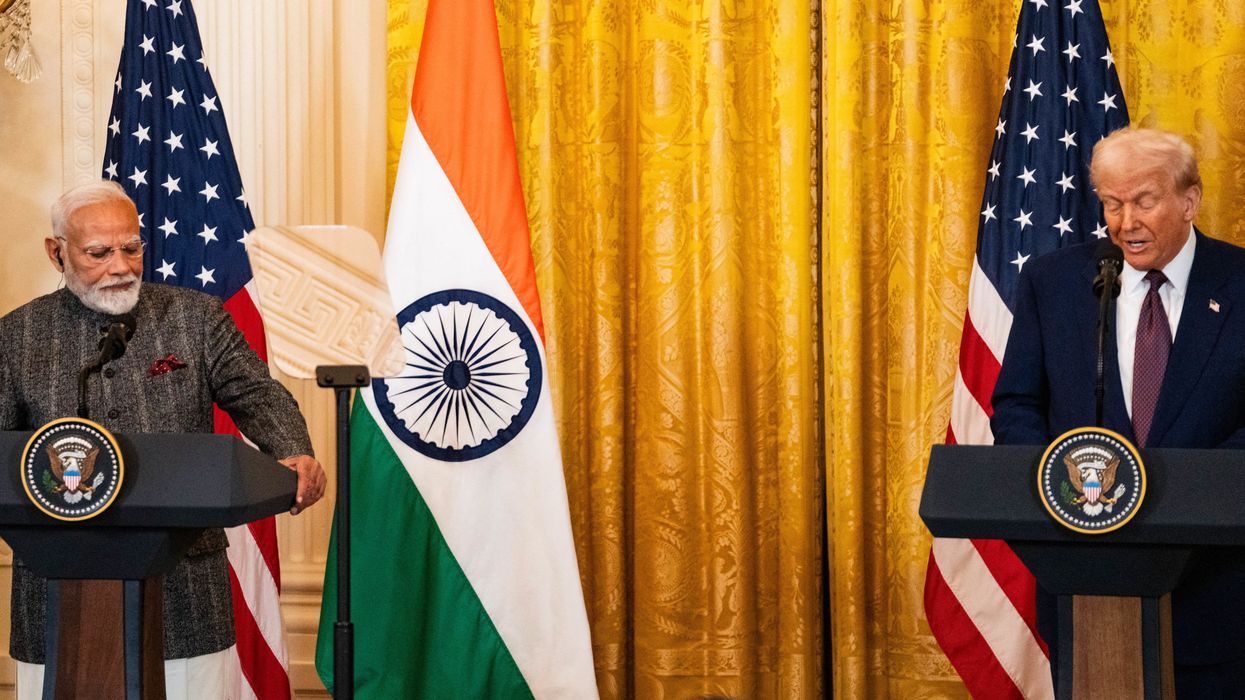The United States has announced a 27 per cent reciprocal tariff on Indian goods entering the American market.
Industry experts have said these duties will pose challenges for Indian exports, though India's position remains more favourable than some of its competitors.
Here are the key questions and answers explaining the impact of the US move:
Q. What are tariffs?
A. Tariffs are customs or import duties imposed on goods entering a country. The importer pays this duty to the government, and companies often pass these costs on to consumers.
Q. What are reciprocal tariffs?
A. These are duties imposed in response to tariffs or trade barriers set by a partner country, effectively acting as a countermeasure.
Q. How much are the new US tariffs on Indian goods?
A. Indian exports already face a 25 per cent tariff on steel, aluminium, and automotive products. Other goods currently have a baseline tariff of 10 per cent, which will increase to 27 per cent from 9 April. The measures apply to over 60 countries.
Q. Why has the US imposed these tariffs?
A. The US government says these duties are aimed at boosting domestic manufacturing and reducing the trade deficit. The US has significant trade imbalances, particularly with China. With India, the trade deficit in goods stood at £26.9 billion in 2023-24.
Q. Which sectors are exempt from these tariffs?
A. Pharmaceuticals, semiconductors, copper, and energy products, including oil, gas, coal, and LNG, are exempt, according to think tank GTRI.
Q. What is the impact of these tariffs on India?
A. The Indian commerce ministry is analysing the impact of the new tariffs. A government official said the effect is mixed and not a major setback.
The Federation of Indian Export Organisations (FIEO) stated that while the tariffs create challenges, India's position remains stronger than its competitors.
Exporters believe the proposed bilateral trade agreement with the US could help Indian industries mitigate the impact.
GTRI noted that the US’s protectionist policies could push India to benefit from shifts in global supply chains.
However, to take advantage of these changes, India must improve its ease of doing business, invest in logistics and infrastructure, and maintain policy stability.
Q. What is the India-US trade agreement?
A. During prime minister Narendra Modi’s visit to Washington in February, India and the US announced plans to negotiate a trade deal.
The goal is to increase bilateral trade to £381 billion by 2030. The first phase of the agreement is expected to be finalised between September and October this year.
Q. What is a trade agreement?
A. Trade agreements reduce or eliminate customs duties on goods traded between two countries and ease regulations to promote trade in services and investments.
Q. How do US tariffs on India compare to other countries?
A. The US has imposed a 54 per cent tariff on China, 46 per cent on Vietnam, 37 per cent on Bangladesh, and 36 per cent on Thailand.
Q. Are these tariffs compliant with WTO rules?
A. International trade expert Abhijit Das said the tariffs violate World Trade Organisation (WTO) rules, breaching both Most Favoured Nation (MFN) obligations and bound rate commitments.
He added that any affected WTO member has the right to challenge these tariffs through the dispute settlement process.
Q. What is the value of India-US bilateral trade?
A. The US has been India’s largest trading partner from 2021-22 to 2023-24. It accounts for 18 per cent of India’s total goods exports, 6.22 per cent of imports, and 10.73 per cent of bilateral trade.
India had a trade surplus of £26.9 billion in goods with the US in 2023-24.
In previous years, the surplus stood at £21.1 billion in 2022-23, £25.1 billion in 2021-22, £17.4 billion in 2020-21, and £13.2 billion in 2019-20.
India’s main exports to the US in 2024 included:
- Drug formulations and biologicals: £6.2 billion
- Telecom instruments: £5 billion
- Precious and semi-precious stones: £4 billion
- Petroleum products: £3.1 billion
- Gold and other precious metal jewellery: £2.4 billion
- Ready-made cotton garments: £2.1 billion
- Iron and steel products: £2 billion
- Crude oil: £3.4 billion
- Petroleum products: £2.7 billion
- Coal and coke: £2.6 billion
- Cut and polished diamonds: £2 billion
- Electric machinery: £1 billion
- Aircraft, spacecraft, and parts: £992 million
- Gold: £992 million





